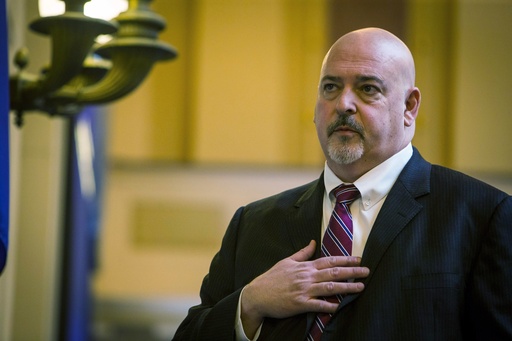RICHMOND, Va. — In a bid to fulfill campaign promises, Democrats in control of the Virginia legislature are working towards expanding constitutional protections for abortion access, which, if successful, would make Virginia the first Southern state to do so.
On Wednesday, the House Privileges and Elections Committee moved forward with three proposed amendments to the state constitution, including one dedicated to safeguarding reproductive rights. During discussions, the committee also reviewed proposals to eliminate an outdated constitutional ban on same-sex marriage and explored methods to change the process for restoring voting rights to individuals who have completed their felony sentences.
“This meeting was pivotal in light of the urgent threats our freedoms are facing, which could have an impact on the constituents across all districts represented here,” said Del. Cia Price, the committee chair, at a news conference following the session.
The often spirited meeting anticipates preparations for the resolutions to be taken up in both chambers early next year, after these measures were initially tabled in January. While Democrats justified the delay as standard procedure for introducing amendments in odd-numbered years, Republican Minority Leader Todd Gilbert expressed concern. He argued that the committee’s early discussions on these amendments, particularly regarding abortion rights, warranted greater scrutiny.
“No one in the legislature recalls such measures being tackled this way,” Gilbert asserted post-meeting. “This is an issue of immense importance.”
This legislative agenda emerges following actions by Republican Governor Glenn Youngkin, who repealed a process aimed at restoring civil rights for those who have served felony sentences—something that has drawn criticism from voting rights activists. Virginia stands out as the only state that enforces a permanent ban on voting for individuals with felony convictions unless their rights are reinstated by the governor.
“This amendment provides a transparent process that set rules applicable to all, rather than relying on a single individual’s judgment,” remarked Del. Elizabeth Bennett-Parker, the advocate for the voting rights resolution that passed along party lines.
Since constitutional amendments proposed by lawmakers do not necessitate the governor’s approval, the Democrat-led House and Senate can proceed independently of Youngkin’s input. The process requires that the General Assembly pass these amendments twice over a span of at least two years, with a legislative election occurring between sessions. The collective fate of these amendments will depend heavily on the Democrats maintaining their slim majorities in both chambers.
Historically, legislative attempts to propose such amendments have encountered hurdles. In 2022, a push to restore voting rights was rejected by a Republican-led House subcommittee, even after it had gained approval in a Democrat-led House the previous year. Additionally, the same subcommittee dismissed a measure seeking to repeal the 2006 amendment that prohibited marriage equality.
On the same day, a bipartisan coalition of lawmakers approved by a 16-5 vote a resolution to protect same-sex marriage, with support from four Republicans.
“To put it bluntly, voters passed this amendment in 2006, and since then, around 100,000 individuals have come of voting age each year,” noted Del. Mark Sickles, who sponsored the amendment and serves as one of the first openly gay members in the General Assembly. “Public sentiment has evolved over the years.”
Last year, a constitutional amendment aimed at protecting abortion rights was approved by the Senate but failed in the Republican-controlled House. On Wednesday, however, this measure also advanced along party lines.
If this resolution, led by House Majority Leader Charniele Herring, succeeds, it would contribute to a rising trend of reproductive rights measures being placed on ballots. Since the start of 2022, voters in various states have seen 18 similar questions emerge, siding with abortion rights proponents on 14 occasions. Constitutional protections for abortion access have been successfully established in nine states, while a measure in Nevada requires additional approval in 2026 to be enshrined in the constitution.
As discussions on the abortion amendment unfolded, around 18 individuals shared their thoughts. Mercedes Perkins, who is 38 weeks pregnant, emphasized the significance of a woman’s right to make decisions regarding her own body. Another Virginia resident, Rhea Simon, shared how reproductive healthcare had impacted her life.
However, moments later, a line of over 50 individuals expressed opposition to the abortion amendment. “Let us act with compassion for both mothers and unborn children,” said Sheila Furey, prompting a chorus of “Amen” from the audience, followed by applause.


